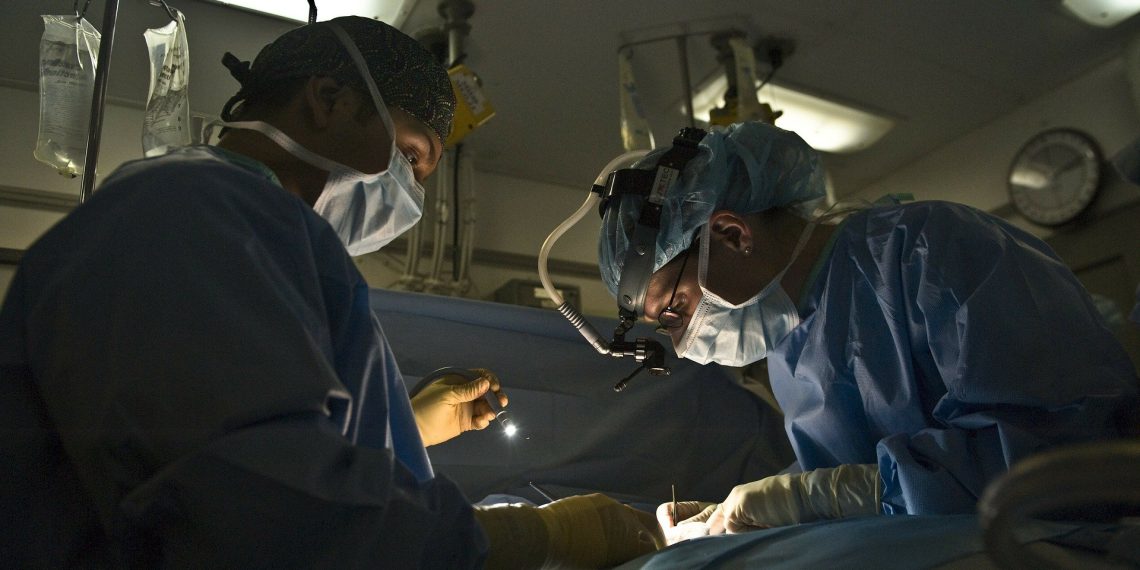Prof. Dr. Holger Specht from the Stralsund University of Applied Sciences recently gave a lecture on the topic of “Medicine in Changing Times — Technical Advancements in Diagnosis and Therapy” at the invitation of the Bundeswehrkrankenhaus Berlin (German Armed Forces Hospital Berlin) — to prospective doctors, physicians, scientists and the commander and medical director of the Bundeswehrkrankenhaus Berlin, Surgeon General Prof. Dr. Horst-Peter Becker. The lecture was received with tension. After all, “normal medicine is extremely changing,” explained Prof. Dr. Specht, “and the topic will become increasingly explosive.” The use of artificial intelligence in medicine is no longer a dream of the future. In a few years, Prof. Dr. Holger Specht explained, a quarter of the world’s entire energy requirements will be needed just to move data back and forth, as well as the fact that this would require 1,000 more power plants in the world.
Endoscopic, surgical and robot-assisted interventions
The master’s program in medical technology systems at Stralsund University of Applied Sciences, led by Prof. Dr. Holger Specht, is up to date in this respect. Students learn in-depth knowledge of anatomy and physiology and the technology of diagnostics and therapy. Selected treatment options and associated techniques are kept up to date in a separate subject by the professor and physician Prof. Dr. Katja Matthias on selected topics in medicine. In the future, the added value is to be increased even further. Formally, the course of studies will receive new examination and study regulations and will make groundbreaking additions to its range of courses.
“Before the times of Corona, regular excursions lasting several days were organized to medical facilities and well-known companies in medical technology, since this was unfortunately not possible in the past two years, we now want to report live from the operating room. What I see will also be transmitted one-to-one to the students,” explains Prof. Dr. Specht, who will also comment on the operations.”
- Prof. Dr. Holger Specht
Students should also be able to see the practical application. The plan is to give students insights into minimally invasive endoscopic and general surgical procedures in this way. In the future, Prof. Dr. Specht also wants to acquire robot-assisted high-tech operations for the students for release to the stream.
Negotiations with several hospitals
For the winter semester 2022/23, in the fall of next year — “when the corresponding subjects are classically read,” explains Prof. Dr. Specht, the study program should be enriched by this exclusive offer and students will be able to witness real operations. To this end, he is in negotiations with various hospitals. There has also been a fruitful first meeting with the Surgeon General of the Bundeswehr Hospital in Berlin. In addition, the current strength of the course — its proximity to innovations in the medical sector — is to be further emphasized with the introduction of the subject “News from the Clinic and Development”, which Prof. Dr. Specht himself will read. In the future, he would like to expand the course as an online degree program so that students can build up expertise in medical technology systems across the globe.
Qualified lateral entry for a fertile market
The “Medical Technology Systems” master’s program is deliberately designed for those who have not previously studied medical technology. Graduates of mechanical engineering, business administration or even electrical engineering studies are to be given the opportunity to specialize in this master’s program “Medical Technology Systems”. “These people are really needed,” Prof. Dr. Specht reasons — in the areas of research, development and sales at medical device manufacturers as well as in clinical or university institutions. Medical technology solutions should, for example, cushion the problem of the shortage of skilled workers in the field of geriatric care.

















